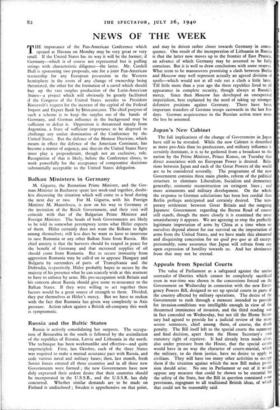Appeals from Special Courts
The value of Parliament as a safeguard against the undue surrender of liberties which cannot be completely sacrificed even in war-time was shown in the concessions forced on the Government on Wednesday in connexion with the new Emer- gency Powers Bill, designed to set up special courts in parts of the country affected by military operations. The desire of the Government to rush through a measure intended to provide for invasion-conditions was intelligible enough in view of the threatened imminence of invasion, and the third reading was in fact conceded on Wednesday, but not till the Home Secre- tary had agreed to provide for a judicial review of the more severe sentences, chief among them, of course, the death penalty. The Bill itself left to the special courts the summall and final decision, apart from the Home Secretary's own statutory right of reprieve. It had already been made clear, also under pressure from the House, that the special courts would have in no way the character of courts-martial, which the military, to do them justice, have no desire to apply to civilians. They will have too many other activities to occuPY them if the situation against which the new Bill makes provi- sion should arise. No one in Parliament or out of it would oppose any measure that could be shown to be essential far the safety of the State, but the Bill in question contained some provisions, regugnant to all traditional British ideas, of which that could not be reasonably said.






























 Previous page
Previous page